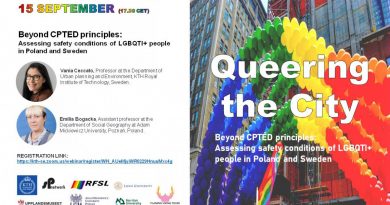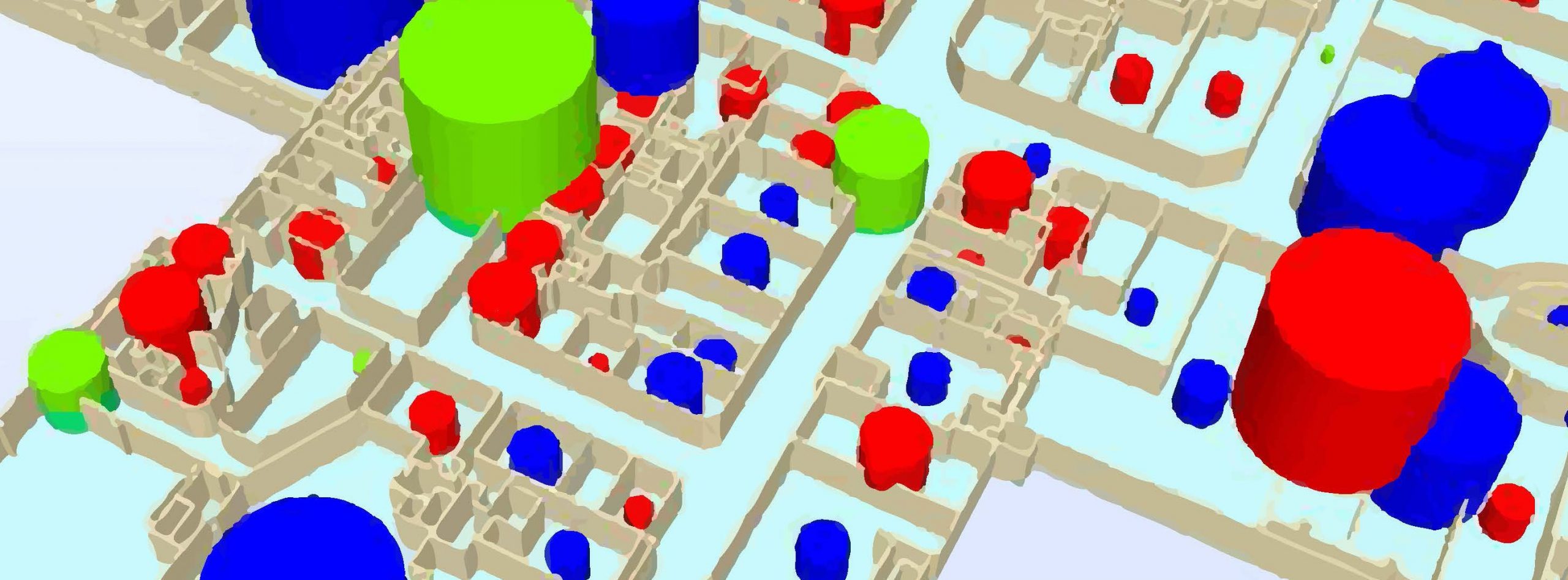Unsettling Conversation: The politics of fear and safety – dealing with uncertainties in planning
Video of the debate is available here
Unsettling Conversation: The politics of fear and safety – dealing with uncertainties in planning
17th October 2018, 17:30-19:00
Sal D1, Lindstedtsvägen 17, KTH Royal Institute of Technology, KTH
Unsettling Conversation: The politics of fear and safety – dealing with uncertainties in planning
The recent Swedish election campaign put significant emphasis on questions of crime and safety. Politicians of all parties promised to “respond to people’s anxieties” by taking harder measures against allegedly rising levels of violence and crime, the emergence of so-called “no-go zones”, and generally to guarantee public safety. While the provision of safe, accessible and healthy environments is listed as part of the UN sustainability goals, the implications of safety are however far from certain and the implementation remains a challenge. Current research supports a more complex understanding of space, gender, security and safety – making distinctions between reality and perception; adding nuances and layers as to who, what and where are actually affected. Aiming to promote cross-disciplinary exchange, this conversation gathers researches from very different kinds of expertise to initiate a discussion on space, fear and safety, asking how planning can deal with uncertainty and insecurity.
PANELISTS
Vania Ceccato, Annika Carlsson-Kanyama, Jonathan Metzger and Erik Stenberg
Catharina Gabrielsson CHAIR, KTH-Centre for a Sustainable Built Environment – CHS
Catharina Gabrielsson is Docent in Architecture, Associate Professor in urban theory and design at the School of Architecture, and Director of the KTH Centre for a Sustainable Built Environment. Her research bridges across aesthetics, politics and economics in combining fieldwork operations with archive and literature studies. She has published extensively in international journals and anthologies, recently as co-editor of a special issueon Architecture and Capitalism, Solids and Flows (Architecture and Culture: Vol. 5, Issue 2 2017). A forthcoming volume, Neoliberalism: An Architectural History (edited with Kenny Cupers and Helena Mattsson) has been awarded by The Graham Foundation and will be published by University of Pittsburgh Press in 2019
Vania Ceccato is a Professor at the Department of Urban Planning and Environment, School of Architecture and the Built Environment, KTH Royal Institute of Technology, Stockholm, Sweden. She coordinates the national network Safeplaces (Säkraplatser) funded by The Swedish National Crime Prevention Council (BRÅ).Ceccato’s research is on the situational conditions of crime and crime prevention in urban and rural environments. She is interested in the relationship between the built environment and crime and perceived safety, in particular, the space-time dynamics of crime and people’s routine activity. Gendered safety and the intersectionality of victimisation are essential components in her research. Main research areas are transit safety, crime geography, housing and community safety, rural crime, retail crime. She has published in international journals, mostly in Criminology, Geography and Urban Planning and is the author of several books. For more details see her professional profile here.
Annika Carlsson-Kanyama
Jonathan Metzger has a PhD in Economic History and is Associate Professor at the Division of Urban and Regional Studies, KTH Royal Institute of Technology. He conducts research on decision making as it relates to environmental issues, with a focus on urban and regional planning, policy and politics. Much of his recent work focuses on the politics of calculating the economic value of environmental damages and amenities. Jonathan has edited a number of books and has published in leading international journals in subject areas such as planning studies, geography and organizational studies. He is a member of the editorial boards of the international journals Planning Theory, Planning Theory & Practiceand Fennia: International Journal of Geography.
Erik Stenberg is Associate Professor in Architecture at the School of Architecture and Assistant Director of KTH Center for a Sustainable Built Environment. KTH. He combines teaching and research, especially concerning the practice and politics of restructuring the large scale post-war modernist housing areas of the Million Program Era in Sweden. He has redesigned apartments, organized a housing fair (Tensta Bo 2006), researched and exhibited archival material from his growing collection, started an introductory architecture school in one of Stockholm’s largest modernist housing areas, and lectured extensively nationally and internationally. Erik is the project leader of Grön BoStad Stockholm, a 3 year 62 MSEK EU structural funds project with the aim to make the housing sector in the greater Stockholm region smarter, greener and more socially sustainable.


